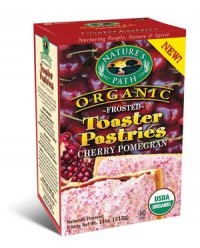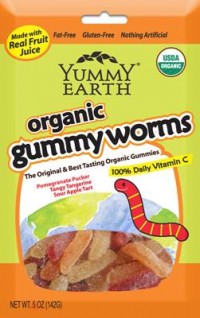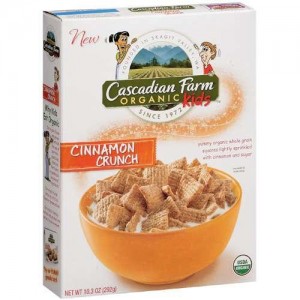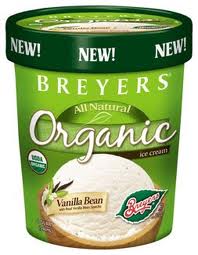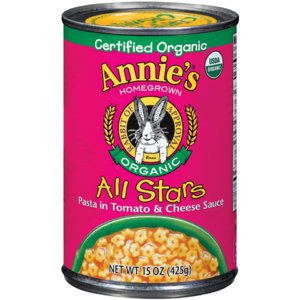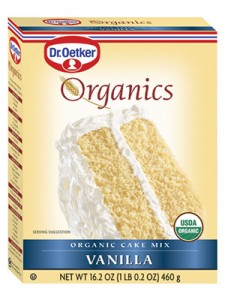When Organic Isn’t Healthy
Having a product labeled as “USDA Organic” doesn’t mean that you should automatically consider the product to be “healthy”. You need to take a deeper look…
Definition of Organic
That Organic label just means that the food is grown, processed, and packaged without the use of agricultural chemicals, artificial colors or flavors, genetic modification, irradiation, or other synthetic ingredients.
Simply put, the term “organic” doesn’t mean that a product is automatically “healthy” or good for your body.
Unhealthy Organic Products
There are a lot of unhealthy products out on the market today that are considered by many to be nutritious and healthy, partly due to marketing campaigns and an “All Natural” or “Organic” label on the front.
I have hand picked a couple of Organic products out on the market today that are about as guilty as the non-organic comparisons. I can’t say these are the “unhealthiest” organic products out on the market today, but they are just a few examples of products to avoid. These products just can’t be considered healthy, no matter how big that USDA Organic label is on the front of the package!
Organic Toaster Pastries
These can easily be compared to the popular Pop•Tart, nothing more than a sugary pastry. Yes, it’s made with “real fruit”, but it doesn’t quite make up for all of the other ingredients. The second ingredient is evaporated cane juice invert (which is sugar) and the third ingredient is evaporated cane juice (sugar, again!), and dextrose (simple sugar).
Organic Cream Filled Cookies
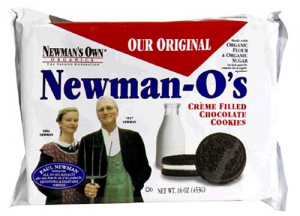 Just like an Oreo cookie, these Newman-O’s are high in calories, fat, and sugar. The organic ingredients just don’t quite remove the side effects of eating junk food.
Just like an Oreo cookie, these Newman-O’s are high in calories, fat, and sugar. The organic ingredients just don’t quite remove the side effects of eating junk food.
Organic Gummy Worms
These little gummy worms are organic and contain 100% daily vitamin C, so these must be really healthy for you, right? Wrong. There’s not enough vitamin C or natural fruit juice in this little bag of candy to compensate for the amount of sugar they put in these little gummy worms.
Organic Cereal
This organic cereal is marketed as a healthy cereal for kids, yet the second ingredient is sugar. Not only that, this cereal contains dextrose (fancy word for a simple sugar) and maltodextrin (which is a food additive, mostly found in soda and candy).
Organic Ice Cream
It’s “All Natural” and “Organic”, how could you go wrong? Even though this ice cream has been touted as different from other ice creams, it still contains key ingredients that keeps it on the naughty list: sugar.
Organic Tomato and Cheese Sauce
This organic canned meal is marketed towards kids, so it must be healthy, right? This product clearly misses the grade, primarily made with noodles made with semolina (processed wheat flour that removes the bran – and fiber), and evaporated cane juice (sugar).
Organic Cake Mix
You can make a healthy cake (organic or not), but this cake isn’t it. It’s loaded with 18 grams of sugar per serving (12 servings per box), and that’s not including the sugar and fat that will be in the frosting!
Organic Sugar is still…Sugar
If a product is full of unhealthy ingredients, whether it’s labeled as organic or not, it’s still going to be bad for your overall health. You can still gain weight or get sick by eating organic only ingredients. As I like to say, organic sugar is still…sugar. Organic doesn’t automatically make sugar and unhealthy fat (or any other unhealthy ingredient) magically become good for you.
If you would like do eat organic foods and are truly looking for healthy products for you and your family, suggest buying fresh organic produce and organic products that don’t contain unnecessary ingredients. Check the list of ingredients thoroughly. Companies may try to deceive you by using fancy words, but ingredients will never lie. If you need to, look up the ingredient in the dictionary to decide whether an ingredient is healthy or not.
Feel free to follow us, however you like: Google+, Facebook, Twitter, Pinterest

